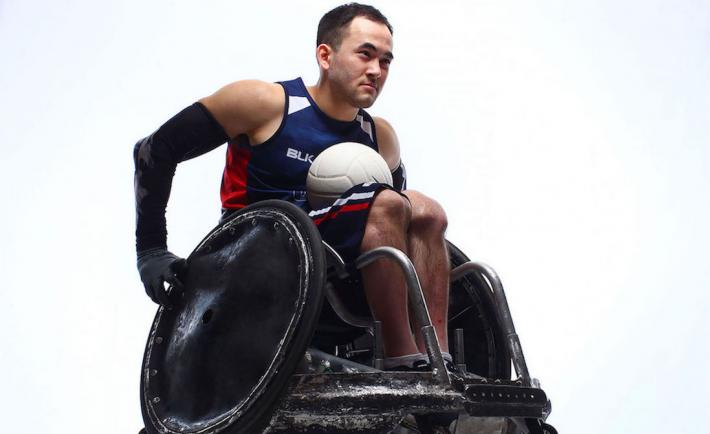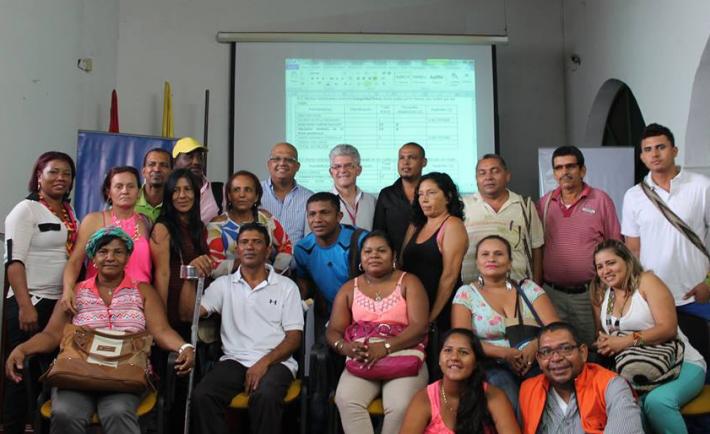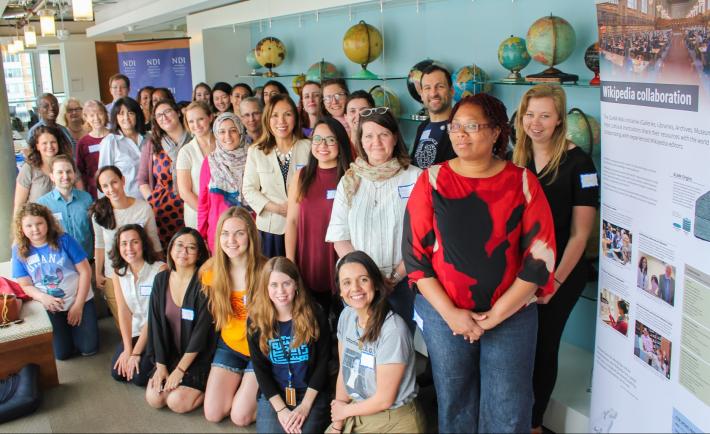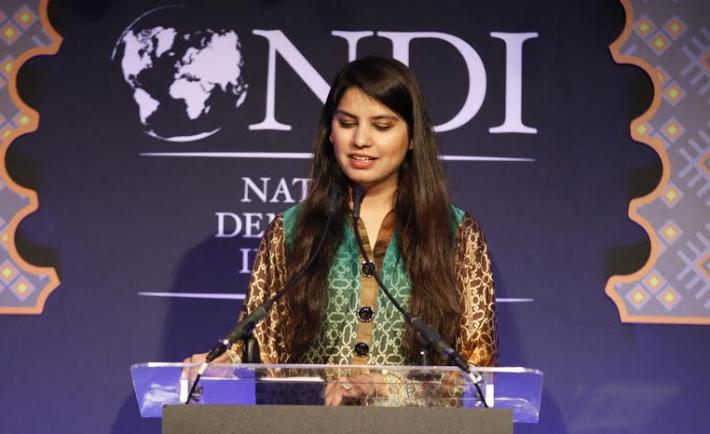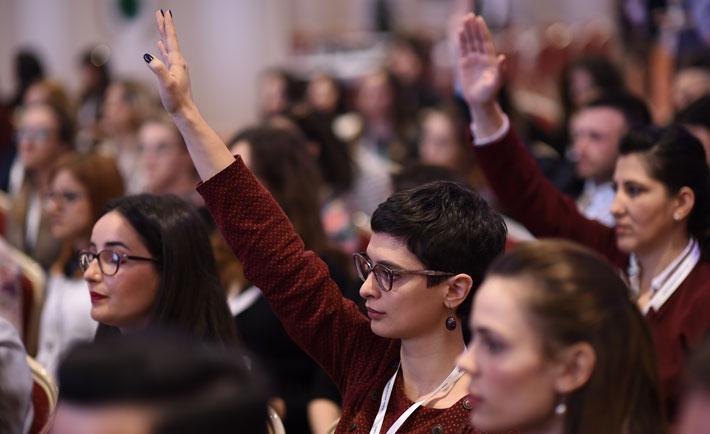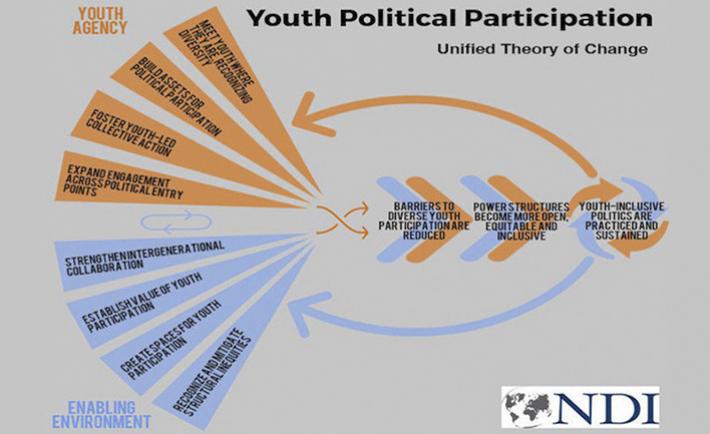Growing up, I dreamed of playing professional sports. When I first met a person who used a wheelchair like me and was a competitive athlete, I felt like I could do anything. Even if I had not made it to the Paralympic level, knowing that there existed a place where my disability and I were explicitly welcomed was heartening. The same is true at NDI. Inclusion is at the crux of what we do, whether it be with youth, persons with disabilities, LGBTI persons, or ethnic and religious minorities. When NDI and its partners explicitly talk about the importance of inclusion, it resonates with those who often feel excluded. NDI, and organizations like NDI, that take inclusion seriously and embrace it in their work are a source of hope for those of us in the disability space who can, at times, feel invisible. I can say from first hand experience, that true inclusion really does change lives.
Inclusion Matters: From the Paralympics to NDI
Progress toward youth-inclusive politics
Today’s youth are at a critical juncture. The current young generation - the largest in global history - is disproportionately affected by unemployment, insufficient access to education, violent conflict and a number of other challenges. Eager to play a role in changing their communities and nations for the better, many young people have become frustrated with political processes that seem out of reach, out of touch and ineffective, and have since turned to other ways to give back to their communities. To encourage youth to “opt-in” to the state, governments need to give them more than a seat at the table to address matters affecting their lives. Failure to do so may further widen the growing rift between youth and political institutions, and make youth more vulnerable to recruitment by extremist groups.
Internally Displaced People and Refugees Must Take Part in Political Life
One person is forced to flee their home every second according to the International Displacement Monitoring Center. The current estimated number of refugees and internally displaced people (IDPs) around the world is 65.3 million, a number equivalent to the total population of the United Kingdom. These numbers show that new and protracted crises are driving people from their homes at an alarming rate. Humanitarian systems devote huge efforts to ease refugees’ suffering, specially focused on providing basic needs like food and shelter. Though these interventions are crucial, political participation for refugees and IDPs is also important and can be the first step to finding viable long-term solutions for their plight.
Mind the Gap: Highlighting Women's Representation on Wikipedia
“What will people think of us when they look back and find that in 2017, Wikipedia only had 16.97 percent of its biographies about women? They’ll say ‘shame on them,’” said Wikimedia-DC’s Rosie Stephenson-Goodknight at NDI, Wikimedia-DC and the Women’s Media Center’s first joint edit-a-thon. Wikipedia is the main online encyclopedia of our digital age. Openly sourced from the public, one might expect a nearly equal rate of women’s representation on Wikipedia—but it’s not even close. As Stephenson-Goodknight noted, only 17 percent of biographies on Wikipedia’s English site are of women, and it’s an even lower number on most of the site’s other 295 languages.
A New Side of Skills Development
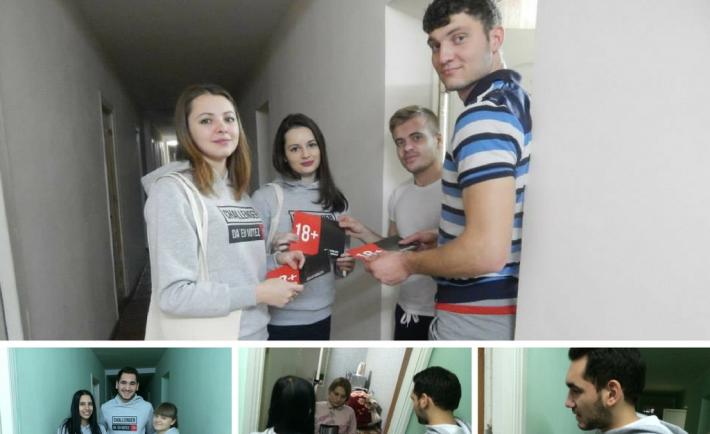
Participants in Moldova’s Challenger program canvass and get out the vote for parliamentary elections.
What helps citizens succeed as political leaders and activists? Beyond providing technical skills and tools, NDI has noted that developing certain attitudes and behaviors can help citizens participate more meaningfully in public life. Young political activists have consistently mentioned the need for improved “soft skills” to work effectively and succeed as leaders. USAID and other donor agencies are also recognizing the importance of putting these skills at the center of human development.
Grounding Theory in Practice: Youth programs in Jordan and Kosovo
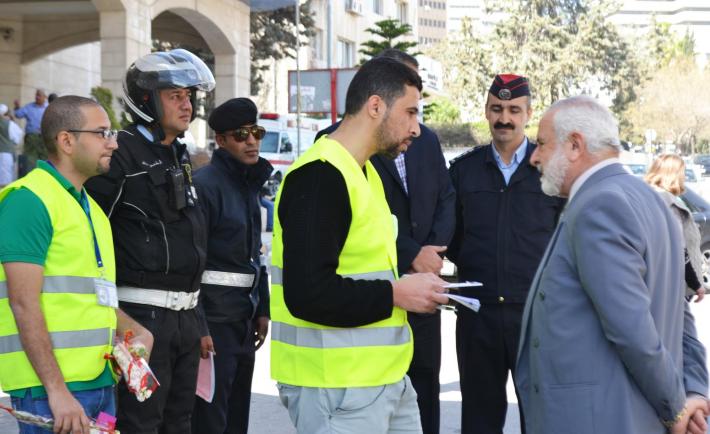
Usharek+ participants in Jordan launch their advocacy campaign with the goal of improving traffic safety.
NDI’s new theory of change unifies important elements of youth political participation programs and depicts how they can interplay to change practices of youth participation. This theory, which I blogged about last month, was not merely academic exercise from the “ivory tower.” It draws on discussions with young politically active women and men across Africa and Latin America, collaborative discussions with democracy and governance practitioners from around the world, and deep reviews of effective youth programs NDI is conducting in Jordan and Kosovo. The Jordan and Kosovo programs show how the theory of change can play out in practice.
Women’s Political Equality in Pakistan: Not an Impossible Mission
How did I come to understand what has become my mission in life? Well, I come from a social context in Pakistan where, like in all developing countries, women’s vision and committed approach to a practical life goes through tough challenges. It can even start within a woman’s own family. Fortunately, my family stood by my ambition of joining social work as a profession.
Make Sure You Aren’t the Last
I come from a long line of tough, trailblazing, phenomenal women. My grandmother would go into villages in India with a bullhorn, telling poor women how to access birth control. My mother came to the U.S. at the age of nineteen to study endocrinology at University of California-Berkeley and eventually became a leading breast cancer researcher. There’s no way I could have begun my political journey without strong role models like them to inspire me.
Needing A Longer Runway: Inspiring Young Women’s Political Engagement
Take a moment to reflect on what you wanted to become when you were eight years old—which, if you are a woman, was when you were at your most confident. How did that change by the time you turned eighteen? For those who were (or are) aspiring politicians, you might be interested to know that research in the U.S. says girls are equally politically confident—for example, in running for class president and student councils—as boys until high school, when it drops by half. NDI’s Gender, Women and Democracy team has taken on the task of finding out what this political confidence gap looks like on a global scale and, more importantly, how to address it.
How to help youth strengthen their participation and influence
Surging youth activism and leadership has the potential to change the world. Accordingly, young people are increasingly being recognized as indispensable agents for sustainable development and the source of a demographic dividend. But more work is necessary to support their active engagement and satisfy young people’s desire to have more than just a seat at the table. To help meet this need, NDI recently developed a unified theory of change, illustrated in the graphic above, which depicts the process of institutionalizing meaningful youth political participation.

